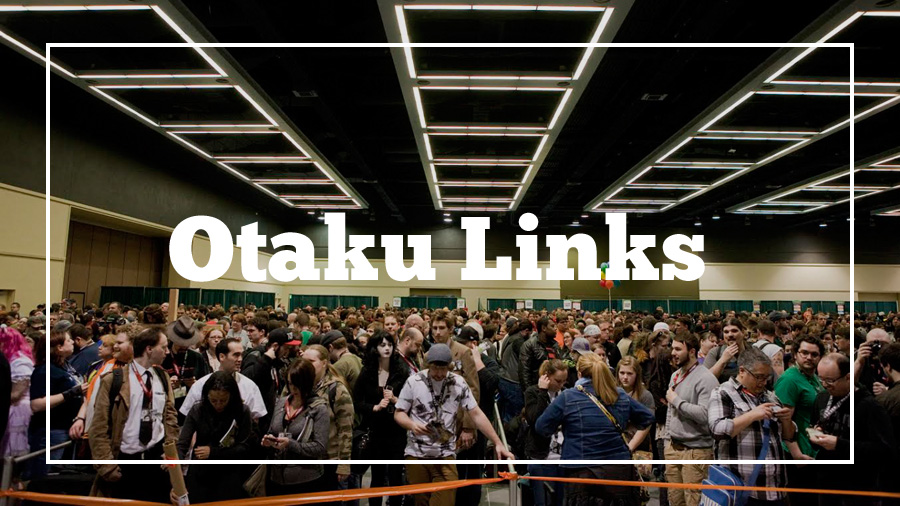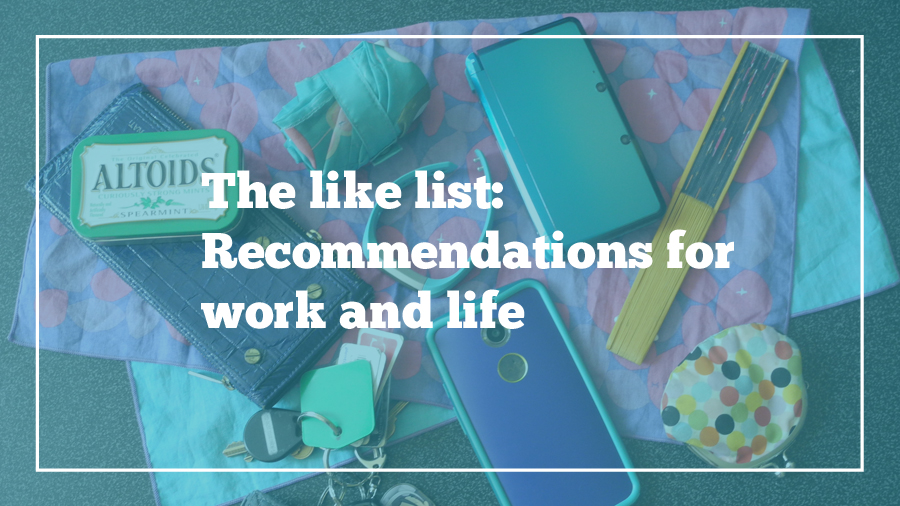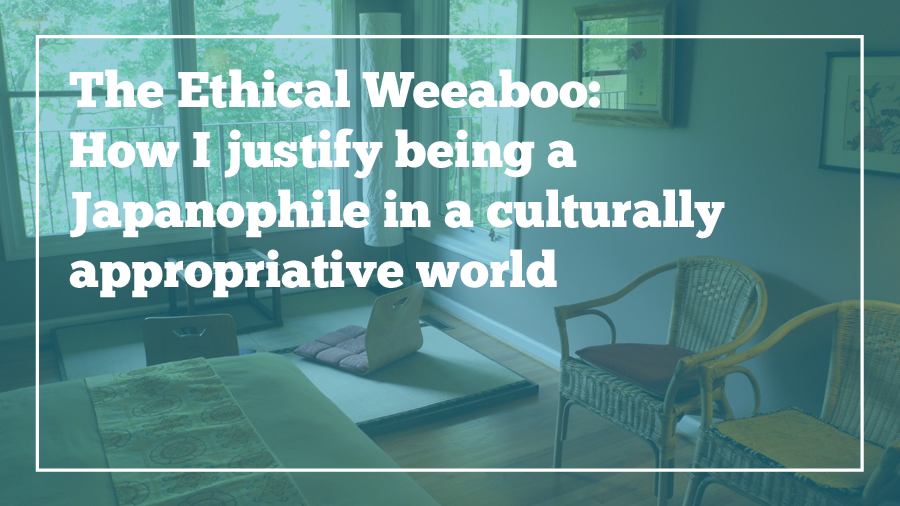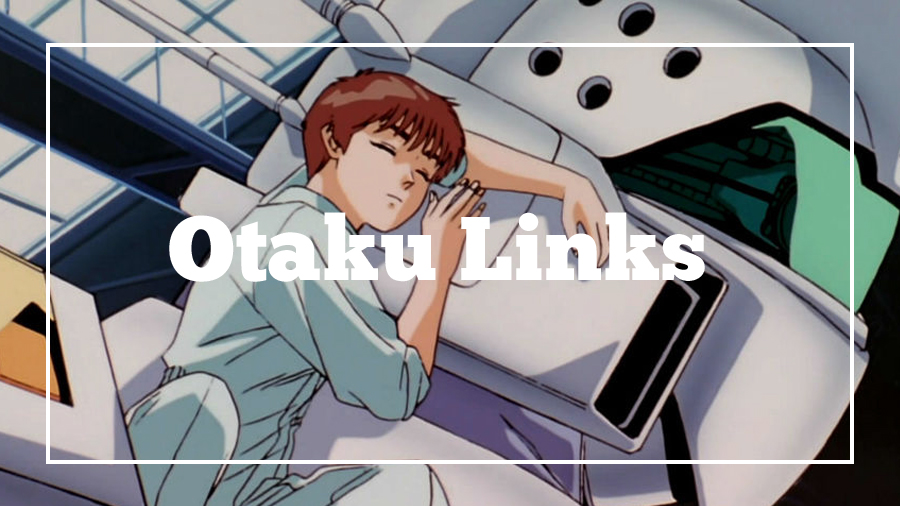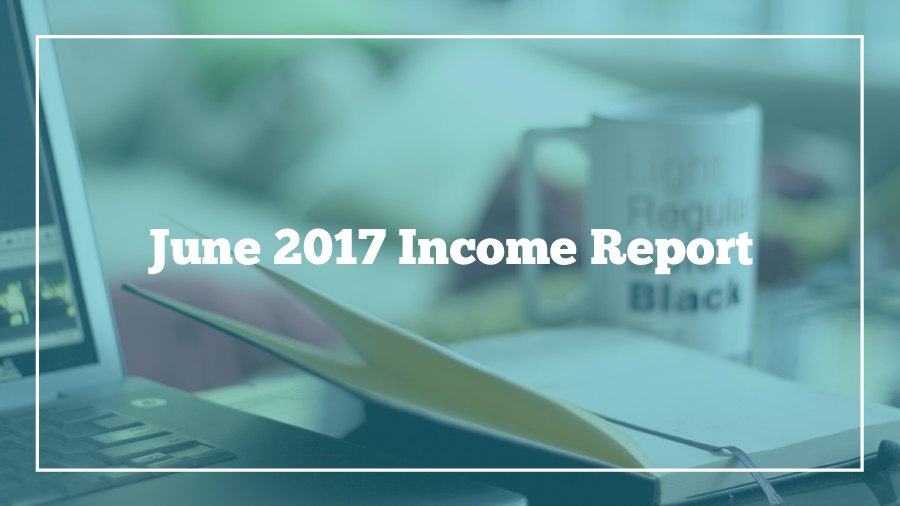
I’ve now been writing these income reports for one year. This is the last one. It’s time to stop because I no longer think they’re helpful. Or for that matter, relatable.
I started posting income reports thanks to a suggestion from a reader during my last survey. This was originally something to help other people, by visualizing how I earn money, and how much work a freelancer might need to output in order to make a living.
But when I posted my first income report last June, the world was a different place. Freelancers had the assurance of the Affordable Care Act, and now we’re at risk of having that taken away.
I get my healthcare through John, who has a traditional job. Of course, that’s no guarantee that he won’t lose healthcare, but it feels like a steadier bet. On top of that, I get other privileges from being married like, knowing that if I have a rough month I can ask for help. And actually, after four years of marriage we recently stopped splitting everything down the middle. These days, John pays for the rent and the groceries; I fund vacations and invest monthly in our savings.
This, combined with the fact that I never did get around to sharing actual numbers, just makes my reports unhelpful for the average person. Additionally, these posts get fewer comments than anything else I write, so I guess the writing’s on the wall there as well.
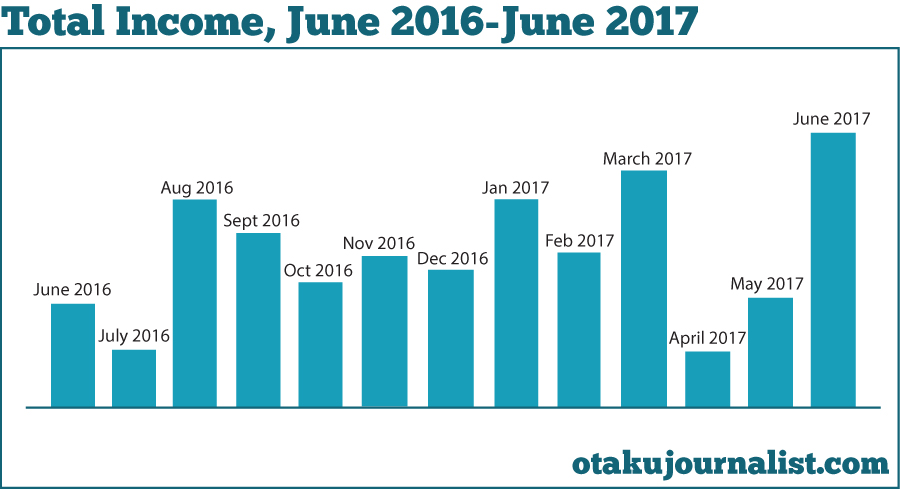
At least we’re ending this experiment on a high note. I had my highest earning month since beginning the project, and it’s mostly because I no longer do much pitching; I have a regular writing client who has been giving me more and more work to do.
This could have been a pretty bad month otherwise. I came down with a fever and cold for more than a week in the middle of June, but because I work from home, I never had to actually take a day off. I would sleep in, write an assignment, go back to sleep, and then check email and do housekeeping around dinner. I still fell sort of behind but I never fully stopped.
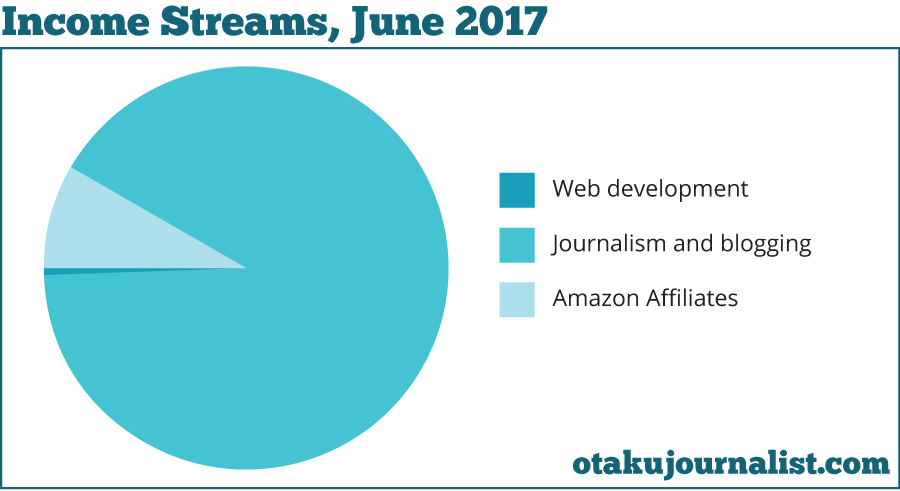
You can see the way my increased writing output has changed the pie chart, too. I still made $500 from Amazon Affiliates, but it looks like such a tiny sliver of the pie compared to all the writing work I do now. My writing roster this month included: Hippo Thinks, Anime News Network, Forbes, and The Billfold, which I just pitched for the first time—a piece about traveling to Japan from a finance perspective. The vast majority of my writing this month is ghostwritten so I can’t share it.
As for web development, I really need to chase down some invoices because I HAVE been working, just not getting paid… yet. I’ve been working mainly for a local psychiatry office, but I just signed a contract for a total redesign that will definitely go up on Lorsini next month.
Let’s check in on those June money goals:
- I wanted to work more and earn more. Even with a nasty cough, I did it!
- I told myself, “don’t throw money at problems.” I started using a free app called Grammarly to edit my posts. It was also easy not to spend money in general in June, since I was at home sick for so much of it. Most of my expenses were for automatic charges, like my Quickbooks Self Employed monthly fee. (By the way, that just jumped from $5 to $10; I only had six months at the 50% off price, I guess.)
- I delegated Anime Origin Stories work to weekends so it would no longer take up precious earning time during the week, but this also means my backlog isn’t quite as reassuringly long and I need to hustle to fill in more posts for the rest of the month. Especially since I’ll be traveling more often, and I’ll want to just schedule posts to go up automatically.
I’m not going to bother setting goals for July since this is the final income report, but I’ve got a lot of neat stuff in the works. I’ve started writing fiction again and I’m inching toward finally sharing some of it with you. I’m working on the Anime Origin Stories book (more on that next Monday). And of course, I want to take the time I’ve freed not doing income reports to provide free resources to aspiring writers that are more useful than this one.
Thanks to everyone who’s been reading these. If you’ve been reading for the whole year, I’m especially grateful! Otaku Journalist has undergone a lot of changes over the past seven years, and I’m thankful to have readers who are willing to follow along with each new evolution.

